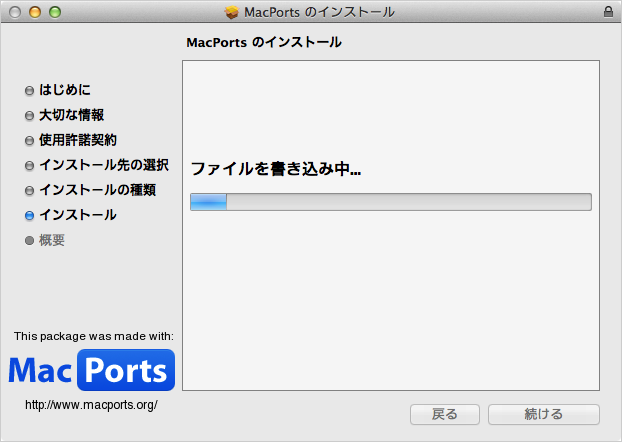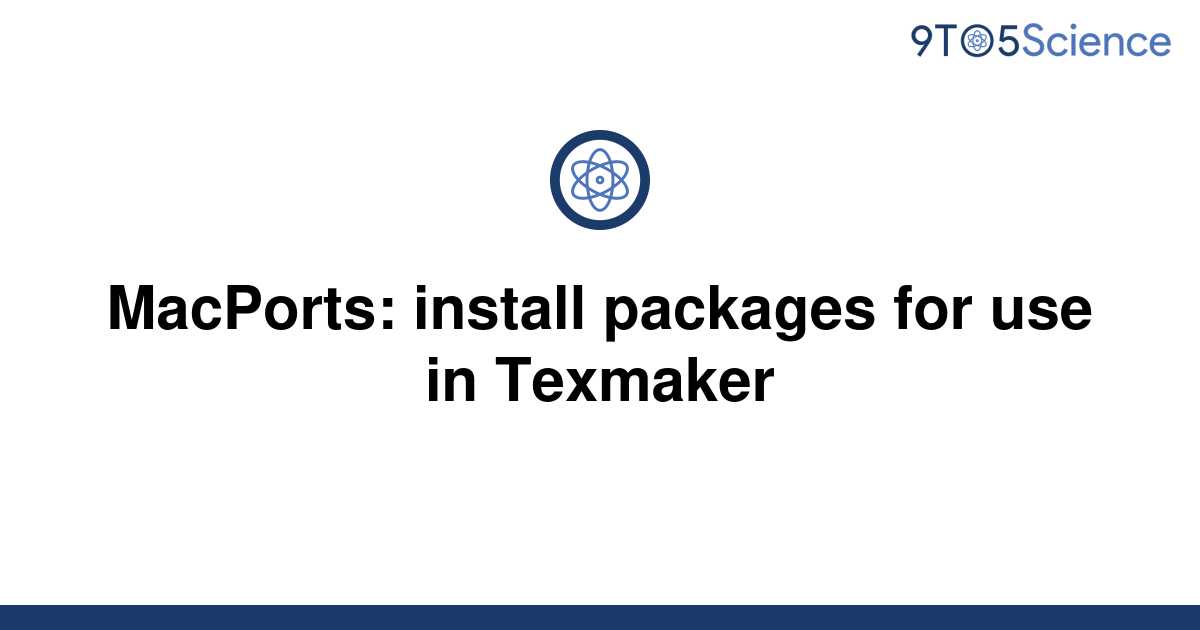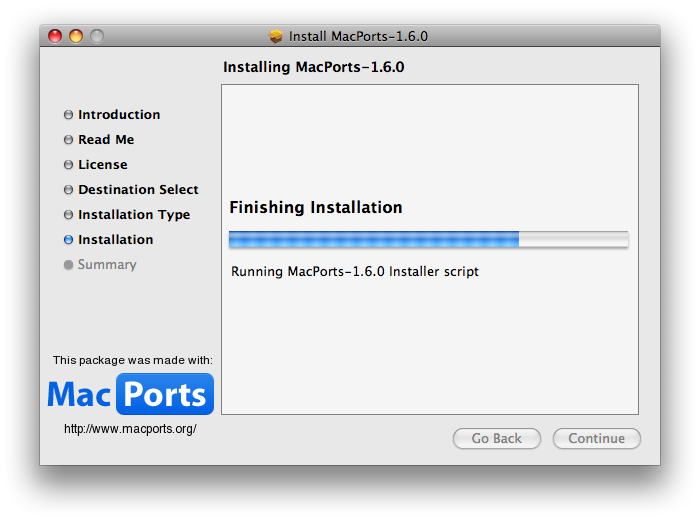

- MACPORTS INSTALL PACKAGE UPDATE
- MACPORTS INSTALL PACKAGE PATCH
- MACPORTS INSTALL PACKAGE CODE
- MACPORTS INSTALL PACKAGE LICENSE
If you've made it this far, you're ready to build and install! python setup.py config -I /opt/local/includeĬFLAGS="-I/opt/local/include/ffmpeg" python setup. Install command line type: sudo xcode-select -install Agree to xcode license type: sudo xcodebuild -license Install latest dmg package from http://www. This change is required for Picard's PUID generation to work on PPC processors with versions 0.9.0 and 0.10.0rc1.ħ.

All it truly requires is replacing the string "OFA_LITTLE_ENDIAN" with the string "OFA_BIG_ENDIAN" in picard/musicdns/ofa.c. Download the PicardQt source, extract it, and apply if you are running OS X on a PowerPC processor. Now "cd" out of this directory (to avoid any conflicts with MacPorts.) Finish installing your new, modified libofa: cd ~ sudo port -d install libofaĦ.Make the changes as per the link above, and follow the next step to finish the install process. something like this would be appropriate: sudo nano -w configureThis instructs "nano," a text editor, to open the "configure" file for editing.

Keep in mind you need to edit the file with root permissions.
MACPORTS INSTALL PACKAGE CODE
Apply the change to the source code described (assuming you want PUID generation): "nano" and "vi" are two common text editors. In my case, this is the command I ran in the terminal to get there: cd /opt/local/var/macports/build/_opt_local_var_macports_sources_release_ports_audio_libofa/work/libofa-0.9.3/ It should explicitly tell you where it has extracted the source code to. Creating a repository on GitHub and writing (un)install instructions is all we need to get started. "cd" to the directory returned by the "port" command. MACPORTS INSTALL PACKAGE PATCH
sudo port -d patch libofaThis will fetch, extract and patch libofa as the MacPorts package maintainers see fit. Install (and modify the source code in the process) libofa. Install more dependencies (it is important that you have run python_select before running this command!) sudo port install py25-hashlib py25-mutagen py25-pyqt4ĥ. Activate your newly-built version of Python 2.5, using python_select: sudo python_select python25Ĥ. Run this to install some dependencies of PicardQt: sudo port install expat ffmpeg fftw-3 gettext python_select python25 qt4-macģ. Install MacPorts, see for more information on this.Ģ. I will submit them for peer review to the MacPorts development list for approval, and hopefully these steps will be obsolete within the next couple days! Installation stepsġ. I have created Portfiles for libofa 0.9.4-test, and Picard itself. Need to test experimental libofa 0.9.4, and create an updated Portfile for it. 
MACPORTS INSTALL PACKAGE UPDATE
You should regularly update your ports tree to get access to updated versions of software and bug fixes. You should probably not use this for building things via MacPorts in general. The local ports tree is a collection of files that contain information on which packages are available through MacPorts and how they can be installed.
I had quite a bit of trouble getting anything to build with the '+universal' variant. Possible Installation Errors Error in Installing gd2 Install MacPorts for your version of the Mac operating system. Agree to Xcode license in Terminal: sudo xcodebuild -license. Install Xcode and the Xcode Command Line Tools. I don’t have environment to test it for M1 chip based Mac So I choose MacPorts now Install MacPorts However, you may frequently faces link or path cannot find issue after OS update for HomeBrew MacPorts requires sudo permission to install package while HomeBrew could install without sudo. MacPorts has more package than HomeBrew. MacPorts almost always builds packages from source, while Homebrew has continuously gotten less and less permissive of letting you do this (opting instead for downloading pre-built binaries). MacPorts vs HomeBrewīoth MacPorts and HomeBrew help you install command line and library to Mac OS. The MacPorts Project is an open-source community initiative to design an easy-to-use system for compiling, installing, and upgrading either command-line, X11 or Aqua based open-source software on the Mac operating system.







 0 kommentar(er)
0 kommentar(er)
